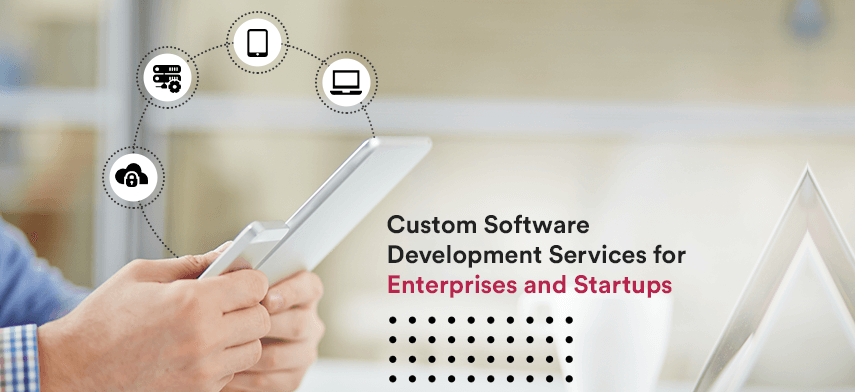In today's digital age, having the right custom development services makes the difference in business success. There are so many options available on the market, it is essential to understand how to choose the right software that fits your specific needs. In this blog, we will explore eight key points to help you in the selection process. From identifying your needs to evaluating the options available, here you will find practical advice to make an informed decision and benefit your company.
Custom software development.
It refers to the creation of specific and customized applications or computer programs to meet the particular needs and requirements of an organization. Unlike commercial or packaged software, which is developed for a broader, general market, software development solutions are adapted to the specific processes, workflows and requirements of a particular company or client. Let's see what kind of software I need for my business.
1. Evaluate your business needs.
Before you start looking for software, it's important to evaluate your business needs. Perform a thorough analysis of the processes and areas of your business that require optimization. Consider aspects such as inventory management, sales tracking, accounting, internal communication or customer service. Identifying your needs will help you be clear about the functions and features that the software should have.
2. Research the market.
The next step is to research the market to find out what options are available. There are various categories of business software, such as enterprise management systems (ERP), customer relationship management systems (CRM), accounting software, marketing tools, e-commerce solutions, among others. Do your research, read reviews, compare features and analyze other users' opinions. Additionally, verify the reputation and experience of suppliers in the sector.
3. Consider scalability.
When choosing custom enterprise software development, it is important to consider scalability. Think about the future growth of your business and choose software that can adapt and scale as your company grows. Make sure the software can handle a higher volume of data and users, and can integrate with other existing tools or systems. Scalable software will save you time and money in the long run.
4. Try the demos.
Request free demos or trials of the software you are considering. This will allow you to explore the interface, functionalities and usability of the software. During the test, evaluate whether the software fits your needs and is easy for your employees to use. Consider how it integrates with your current processes and whether it is intuitive for users.
5. Consider security.
Data security is essential in any company. Make sure the software you choose has strong security measures, such as data encryption, user authentication, and regular backups. Check if the software complies with the security and privacy regulations applicable to your industry.
6. Evaluate technical support.
Check if the software provider offers good customer service and technical support. Find out how you can access technical support, whether via live chat, email, or phone. It is important to have fast and efficient help in case of problems or questions. Read reviews and testimonials from other users to get an idea of the quality of technical support provided by the provider.
7. Calculate the total cost.
When choosing business software, it is crucial to consider both the initial cost and the associated ongoing expenses. Compare the prices of different providers and see if they offer monthly or annual subscription options. Keep in mind that software can help you save costs in other areas or increase the efficiency of your business, which in the long run can offset a higher initial investment. Perform a cost-benefit analysis and evaluate how the software can contribute to the growth and profitability of your business.
8. Check the opinions and testimonials.
Before making a final decision, read reviews and testimonials from other users of the software you are considering. This will give you a clearer idea of the real experiences of people who are already using it. Look for reviews on trusted websites and online communities related to your industry. Take into account both positive and negative reviews to get a balanced view of the software.
Conclusion.
Selecting the right software development consulting firms for your business is a crucial process that requires research, analysis, and informed decision making. Assess your business needs, research the market, consider scalability, try demos, evaluate security, technical support, and calculate total cost. By doing so, you will be able to select software that meets your needs, improves the efficiency of your business, and contributes to its long-term growth and success.





Comments